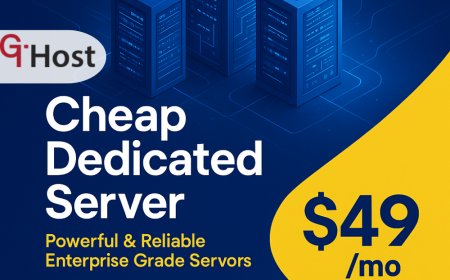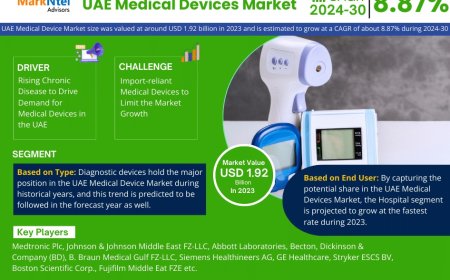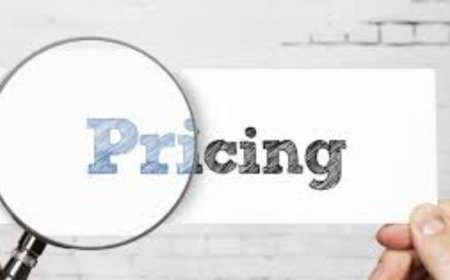Are CRM Tools Able to Tailor the Student Learning Experience?
Customer Relationship Management (CRM) tools are redefining how educational institutions interact with students. By leveraging CRM education software, schools and universities can personalize communication, track progress, and provide tailored support to enhance the learning journey.

In todays tech-driven education landscape, students expect learning experiences that are not only efficient but also personalized. Educational institutions are responding to this demand by adopting innovative technologies, and one of the most effective tools at their disposal is Customer Relationship Management (CRM) software. Originally designed for businesses, CRM software is now making significant inroads into the academic worldhelping educators build meaningful, customized interactions with learners.
But the question remains: Are CRM tools truly able to tailor the student learning experience? The answer is a resounding yesand heres how.
Understanding Customer Relationship Management in Education
Customer Relationship Management (CRM) is widely used in the business world to manage customer interactions, improve service, and drive sales. In the context of education, CRM education software is designed to manage relationships with students, parents, alumni, and other stakeholders. It goes far beyond handling admissions and inquiries. A robust CRM platform can centralize student data, automate communication, and personalize the academic journey for every learner.
This shift from one-size-fits-all to student-centered learning is made possible by CRM software features that enable educational institutions to deliver more responsive, adaptive, and engaging experiences.
Key Features of CRM Software That Enable Personalization
Lets take a closer look at how CRM systems are tailored to the educational context:
1. Centralized Student Data Management
A CRM system stores comprehensive student profiles, including academic history, attendance records, extracurricular involvement, communication history, and feedback. With this data in one place, educators can identify learning preferences and provide targeted support.
2. Automated and Personalized Communication
From reminders for assignment deadlines to congratulatory messages for achievements, CRM tools can send personalized messages to students via email, SMS, or app notifications. This automation ensures consistent communication and nurtures a sense of connection.
3. Progress Tracking and Performance Analytics
CRM dashboards provide real-time data on student performance. Educators can monitor academic progress, identify at-risk students, and intervene early with tailored support. Students can also view their own progress and receive customized learning recommendations.
4. Integration with Learning Management Systems (LMS)
Many CRMs integrate with LMS platforms, bridging administrative and academic functions. This synergy allows for personalized learning paths, curated content suggestions, and better monitoring of learner engagement.
CRM for Small Business vs. CRM in Education
CRM for small business is typically focused on managing customer pipelines, sales tracking, and service delivery. While the core functionalities are similar, CRM education software is customized to manage the student lifecyclefrom inquiry and admission to graduation and alumni engagement.
Educational CRMs are tailored for tasks like:
-
Tracking application status and conversion rates
-
Assigning academic advisors to students
-
Sending event notifications and campus news
-
Managing internships and placements
-
Collecting feedback and measuring satisfaction
The Role of the Best CRM Software in Enhancing Student Experience
The best CRM software in education is designed to go beyond administrative efficiency. It empowers institutions to provide personalized learning support, foster engagement, and build long-term relationships with students.
Some of the top CRM tools tailored for education include:
-
Salesforce Education Cloud
-
Zoho CRM for Education
-
HubSpot Education CRM
-
Blackbaud CRM
-
EdTech Innovate CRM Suite
Each of these tools offers robust analytics, easy integration, user-friendly interfaces, and customization options that meet the unique needs of schools, colleges, and training centers.
How CRM Tools Support Customer Relationship Management Education
Interestingly, CRM software is not just a tool but also a subject of study. As businesses increasingly adopt CRM solutions, institutions are offering customer relationship management education as part of business administration and marketing programs.
Students learn:
-
How to use CRM tools in real business scenarios
-
The impact of CRM on customer loyalty and retention
-
How CRM supports data-driven decision-making
-
Ways CRM integrates with sales, marketing, and service platforms
CRM education software used in such programs helps students gain hands-on experience, making them more industry-ready.
EdTech Innovate: Powering Personalization Through CRM
EdTech Innovate is at the forefront of CRM solutions tailored for the education sector. With its comprehensive CRM platform, EdTech Innovate helps institutions manage every aspect of the student lifecycle while focusing on personalization and engagement.
Key offerings include:
-
Smart dashboards with actionable insights
-
AI-powered recommendations for learning content
-
Automated workflows for admission, communication, and support
-
Integration with LMS and ERP systems
-
Custom modules for student mentoring, alumni tracking, and placement support
What sets EdTech Innovate apart is its commitment to delivering personalized experiences at scalehelping institutions create learning environments that are inclusive, data-driven, and student-focused.
Real-World Benefits of CRM in Education
Here are just a few ways CRM software is reshaping the learning experience:
-
Improved Retention: Personalized communication and timely interventions reduce dropout rates.
-
Greater Engagement: Targeted messages and interactive tools make students feel valued and heard.
-
Faster Response Times: Automation reduces delays in responding to queries and concerns.
-
Data-Driven Decision-Making: Real-time analytics help educators make informed academic and administrative decisions.
-
Career Readiness: Institutions can better support internships, placements, and skill development through integrated CRM modules.
Conclusion
To answer the questionAre CRM tools able to tailor the student learning experience?the answer is unequivocally yes. With features designed to centralize data, automate tasks, track progress, and personalize communication, CRM education software is helping institutions transform how they engage with learners.
Whether youre an administrator looking to enhance student support, or an educator aiming to deliver more personalized instruction, CRM is no longer optionalits essential. With platforms like EdTech Innovate, the power to build meaningful, data-driven, and individualized learning journeys is right at your fingertips.
As education continues to evolve, CRM will play a pivotal role in ensuring that no student is left behindand every learner receives the personalized attention they deserve.































